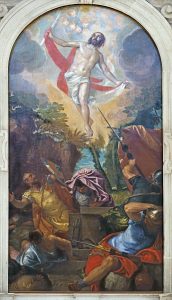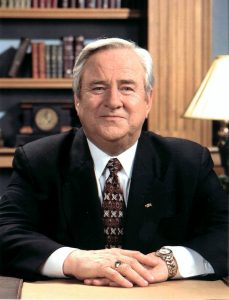11.2 The Christian Right: Development and Worldview
Gregory Millard
Christian fundamentalism is global in reach. Indeed, it can be conceived of as a transnational movement very loosely affiliating reactionary Protestants and Roman Catholics across the Americas and Europe (Cowan, 2021; Lo Mascolo, 2023). Nevertheless – especially among liberal democracies – it is in America that the ‘Christian right’ has had by far the greatest impact (Himmelstein, 2007).
Christianity

Christianity is a religious tradition originating in stories of the life, teachings, death, and resurrection of Jesus of Nazareth, understood as the ‘Christ’ (divine redeemer). According to the Christian Gospels, Christ was crucified by the Roman occupiers of Israel circa 33 CE and rose from the dead. A key distinction within Christianity is between Protestants and Catholics (whether Roman Catholic or Orthodox). Protestantism is extremely diverse, ranging from the stately establishment Church of England to small sects led by charismatic preachers. The evangelical strain of Protestant Christianity emphasizes being ‘born again’ through a transformative experience of Christ and an ongoing, unmediated relationship with Jesus as one’s personal Lord and Saviour.
A subset of Protestant evangelicals in the northern United States were the first to self-define as ‘fundamentalist’ in the early 20th century. They vehemently opposed what they called ‘modernism.’ This meant ‘liberal’ interpretations of the Bible, whereas they insisted that the Biblical texts were inerrant, literal truth. Secondly, these fundamentalists clung to a relentless social and economic conservatism, stressing submission to religious and earthly authority. By contrast, the wider evangelical Protestant community has always been more open to diverging views on such questions (e.g., Boerl and Donbavand, 2015; FitzGerald, 2017).

America’s early fundamentalists occasionally mobilized around political issues, but it was not until the 1970s that the Christian right coalesced into a cohesive and enduring political movement. This was led by an array of preachers and televangelists able to reach national audiences via television and mass mailing lists, of which the most important was probably Jerry Falwell’s Moral Majority. This organization attracted millions of members, helping to recruit, coordinate and mobilize an array of churches and grassroots movements in support of ‘pro-family, pro-American’ causes and politicians.
Exhilarated by the conservative rhetoric of Ronald Reagan, the American Christian right became deeply supportive of, and heavily imbricated within, the Republican Party (Wilcox, 2011; Young, 2016: 241-260). This partisan connection remains vital to this day. Although Donald Trump’s dubious personal ethics initially repelled many fundamentalist leaders (FitzGerald, 2017: 628), their followers – attracted by his promise to restore a lost golden age and to appoint conservative Supreme Court justices – became a staunch part of his electoral base.

Media Attributions
- La Résurrection du Christ 1560 Véronèse © San Francesco della Vigna is licensed under a CC BY-SA (Attribution ShareAlike) license
- Jerry Falwell Portrait © Liberty University is licensed under a CC BY (Attribution) license
- Reagan with Falwell at the Oval Office and Reagan speaking at Baptist Fundamentalism ’84 Conference © White House Photographic Collection, Taken from government video (from U.S.Air Force DVD) is licensed under a Public Domain license

